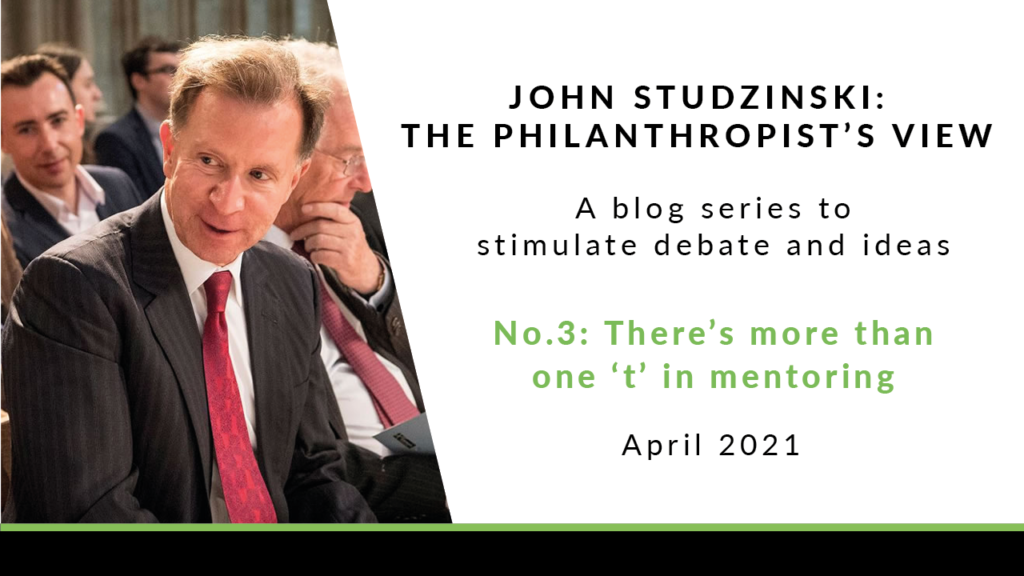No. 3 | There’s more than one ‘t’ in mentoring
15 April 2021

A constant in my thinking on philanthropy is what I call ‘the T’s’. The three fundamental T’s are Time, Talent and Treasure. Treasure – in other words, money – is just one thing you can donate when you want to improve other people’s lives. Your time and your talent can prove just as valuable – maybe even more valuable.
Volunteering your time to mentor someone else is, in itself, an act of philanthropy. No-one else has your particular expertise and understanding of the world. When you act as a mentor, taking time to share your wisdom with someone else, you complement and enhance their skill set. You point the way to solutions, save them trial and error and provide them with what the internet calls ‘life hacks’. As in our work and our everyday activities, there are ‘hacks’ in philanthropy: ways of maximising impact with greater efficiency and speed.
What’s more, as a mentor, you will inevitably learn something from your mentee – mentoring works both ways. A baby-boomer with an open mind can have their understanding transformed by a digital native of Generation Z or Generation Alpha.
As a year of lockdowns has made strikingly clear, technology – now another T in the philanthropy equation – helps us sustain fruitful relationships remotely. Mentoring relationships are no exception. That being said, nothing beats talking face to face when it comes to building trust – an essential dynamic between mentor and mentee, and a fifth T to add to the philanthropy list.
There’s a sixth philanthropy T and that is ‘ties’ – in other words, connections and networks, as crucial to success in philanthropy as in every other endeavour. As a mentor, not only will you build close ties with your mentee but you can also release their potential by giving them access to your proven networks. By volunteering to help other people to success you are setting a philanthropic example – an example that your mentees will follow in the future. Thoughtful, purposeful, generous mentoring can make a philanthropist of anyone.
Read other posts in the John Studzinski: The Philanthropist’s View series







